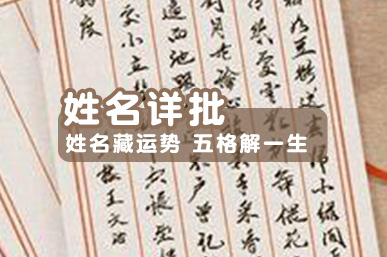r的特殊含义(favor的特殊含义)

“R”是什么?
R,是英语字母中的第18个字母
R,也是ROEWE荣威品牌的首字母
为什么是“R”?
“R”对荣威来说,又有怎样特殊的含义?
今天荣威君就来揭秘
“R”背后的故事!
去留无意从容本色喧嚣之外自有格调天生纯粹,这就是我!ROEWE,to be continued
心之所向,即是诗和远方
放手去做,一切有我
天生无畏,这就是我!
ROEWE,to be continued
最好的保鲜
就是不断进步
天生好奇,这就是我!
ROEWE,to be continued
无所畏惧放肆出彩要争先更要惊艳!天生敢为,这就是我!ROEWE,to be continued
驰骋山河,一往无前
无限魅力,纵情释放
天生带劲,这就是我!
Roewe,to be continued
最好的方向就在脚下
没有什么可以阻挡
我们向上的步伐!
We R ready!R you ready?
就在4月10日
2020年第八届上汽设计国际挑战赛
全球赛区启动仪式云直播活动中
荣威品牌全新logo
面向荣威中高端新能源系列的“R标”诞生!
“R标”将于5月10日中国品牌日
“荣威新国潮”品牌发布活动中
在线上、线下平台正式推出!
敬请期待!
全新荣威logo“R标”的诞生
标志着荣威品牌升级向上又迈进了一大步!
今后,荣威还将持续掀起“荣威新国潮”
引领中国汽车升级向上!
想知道有关“R标”背后
更多不为人知的秘密?
请持续关注荣威君,更多精彩故事
to be continued !
有哪些既高级又简单的网名?
看这里!小众又高级的中文/英文/日文网名大全(收藏预警)
【极致浪漫的英文网名】
1、Nemophilist
一个迷恋着森林的宁静与幽美的人
2、Limerence
因为一个人而神魂颠倒
3、Augenstern
喜欢的人眼中的星星
4、Dreamboat
理想爱人
5、Serendipity
与美好不期而遇
6、Petrichor
泥土在下雨过后散发的好闻的气味
7、Flipped
只是听到就怦然心动了
8、Palpitate
小心翼翼却又急切的心动
9、Morii
渴望留住一个转瞬即逝的体验
10、midsummer
人生已到仲夏,是时候收获了
11、Heartworm
那段关系明明都结束了,你却仍然感觉它在继续
12、Solitude
平静愉悦的独居
13、Lethobenthos
突然发现某人对自己不再有影响的沮丧感
14、Serendipity
意外发现有趣、新奇事物的天赋
15、Serein
深处落雨的黄昏
16、Redamancy
当你爱着某个人时,对方也正爱着你
17、Kilig
形容那种喜欢一个人喜欢得好像胃里正有成千上万只蝴蝶翩翩,一张嘴就要全部飞出来一样的醉醺醺、酥酥麻麻的感觉
18、Dérive
一趟说走就走的旅行
19、Moonquakes
月震 据说遥远的月亮每年都会发生1000多次月震,月亮轻颤,地球上的人却浑然不知。这也太浪漫了吧,就像当你站在我的面前,我的心也在crush呢,只是那些Heartquakes你永远不会知道
20、Onism
因一个躯体无法同时分身多地而产生的失落感
21、Sillage
她/他来到你身边而后又离开,却在空气中留下了好闻的气息
22、Ronronner
猫打呼噜
23、Smultronställe
一个专属于自己的隐秘地方,在那里我们可以远离压力与忧虑,可以放松自我
24、Augety
在心中进入夏天的快乐
25、Petrichor
初雨的气息/雨下过后泥土的香味
26、Uitwaaien
走在风中让自己清醒
27、Collapsar
自我陨落的古老星体,利用自己的重力一步一步走向成为一个黑洞
28、Siesta
盛夏的午后小憩
29、Gökotta
在日出时早起,去户外听鸟的声音,并感受大自然
30、Serein
夕阳西下,干净的天空中有细微的雨滴飘落
31、Phosphenes
揉眼睛时产生的斑斓色彩和光线
32、Komorebi
阳光穿过了树叶之间的缝隙
33、Ethereal
你望着那个如星星般闪耀的人时的内心感受
34、Ameneurosis
午夜突发的苍凉
35、Gnasche
爱到入骨的悲哀。
36、Trouvaille
因生活中偶然发现的美好小事物而产生的满足感
38、Murmure
那种不知名的小溪潺潺的声音、微风吹着树叶沙沙响的声音
39、Confetti
婚礼上掉下的五彩屑屑
40、Volta
夕阳西下时,漫步在大街或沙滩上,和偶遇的邻居或友人闲聊
【可可爱爱的中文网名】
着迷 ♡ ♡ 沉沦 ♡ ♡ 余悸
桀骜♡ ♡ 疏影 ♡ ♡ 放逐
戏言 ♡ ♡ 逐鹿 ♡ ♡ 眉黛
银河 ♡ ♡ 奶泡 ♡ ♡ 终钟
自渡 ♡ ♡ 放逐 ♡ ♡ 山茶
忘川 ♡ ♡ 赴月 ♡ ♡ 忘羡
孤鸿 ♡ ♡ 竹烟 ♡ ♡ 饮舟
—————————— ฅ՞• •՞ฅ —————————
惊鸿客 ♡ ♡ 遇晚星 ♡ ♡ 月和纪
一杯雾 ♡ ♡ 往客舟 ♡ ♡ 春归宴
曲奇饼 ♡ ♡ 窃星贼 ♡ ♡ 酿星酒
星云倦 ♡ ♡ 酒三两 ♡ ♡ 诗两行
—————————— ฅ՞• •՞ฅ —————————
鹤归孤山 ♡ ♡ ♡ ♡ 十里温柔
不负相思 ♡ ♡ ♡ ♡ 夜在熬我
偷熊计划 ♡ ♡ ♡ ♡ 小熊软糖
一届保安 ♡ ♡ ♡ ♡ 满目山河
偷吃月亮 ♡ ♡ ♡ ♡ 星星泡饭
芝士姐姐 ♡ ♡ ♡ ♡ 港岛妹妹
抹茶奶油 ♡ ♡ ♡ ♡ 银河铁骑
—————————— ฅ՞• •՞ฅ —————————
【清新美好的日文网名】
1、「弥生」
三月的旧称
2、「水無」
六月的旧称
3、「陽炎」
晴天在沙滩或田野间看到的无颜色的空气晃动
4、「星屑」
闪耀的斑斑点点的群星
5、「空蝉」
现在指的现世,世间的意思。意思大致对应汉语的「红尘」,放入手中觉得轻飘飘的,稍微握紧一点儿就仿佛会破碎似的那般脆弱。蝉离开的壳就是这样的物件啊
6、「木靈」
从山谷中反射回的声音,也就是居住在山中古树中的灵魂传来的声音
7、「恋の蛍」
恋爱的萤火,指代恋爱的时候闪烁不定,星星点点的焦虑心情
8、「草の陰」
草下的阴影,实则指的是阴凉森冷的孤坟
9、「一番星」
傍晚天边出现的第一颗星
10、「星月夜」
即使没有月亮,也有满天繁星的夜晚
11、「十六夜」
缺口之月,从圆满步向残缺。有延滞停缓之意,象征感情由浓转淡,事情达到巅峰后的滑落
12、「絵空事」
在现实生活里不会出现的事物,也就是常说的白日梦
13、「五月雨」
五月的雨。指一件事情断断续续,持续很长时间
14、「花信風」
春末夏初时节向人们报花将开放的微风
15、「蝉时雨」
比喻蝉鸣像雨点般密集。夏天快结束的时候,蝉儿们想要将仅存的的生命燃烧似的发出最后的鸣声,就像落雨一样
16、「白河夜船」
睡得香甜,酣睡不知身边的事。也指懵懂,什么都不知道的样子
17、「小春日和」
从晚秋到初冬出现的如同春天的暖和晴天
18、「心象風景」
指非写实的,却在人脑海中浮现,被描述或被记忆的风景
19、「群青日和」
群青——深蓝色,日和——晴天,即蔚蓝晴空的好天气
20、「風樹の嘆」
风树之悲,想要反哺时才发现双亲已不在的微妙情感
21、「狐の嫁入り」
狐狸出嫁。指的是日照雨,明明出了太阳却还在下着小雨的画面
22、「夏が終わった」
不单单指夏天结束了。也代表着:青春的消失殆尽,恋爱无疾而终,一种彷徨,无所适从的感觉
“冬日可爱”居然是成语?奇妙的知识又增加了
“前段时间认识一个惨绿少年,长得药店飞龙,实际上是个空心汤圆,做些冷水烫猪的事情,说起话来令人喷饭。”
这段话大家知道什么意思吗?
上面的句子看不懂因为有很多看着不像成语的成语。
惨绿少年
a handsome young man
原指穿浅绿衣服的少年。后指讲究装饰的青年男子,引申为风度翩翩的青年男子。
出自唐张固《幽闲鼓吹》:「客至,夫人垂帘视之,既罢会,喜曰:『皆尔之俦也,不足忧矣!末座惨绿少年何人也?』答曰:『补阙杜黄裳。』」
这个“惨”,通“黪”,指色彩暗淡。可见惨绿少年并不是惨,反而帅气逼人!
药店飞龙
skin and bones
飞龙:指中药龙骨。药店里的龙骨。比喻人瘦骨嶙峋。
出自南朝·宋·乐府《读曲歌》:“自从别郎后,卧宿头不举,飞龙落药店,骨出只为汝。”
空心汤圆
flashy and without substance
指徒有虚名,并无实利可图的东西。
出自茅盾《“九一八”周年》:“华盛顿也许要来‘周年’:重申《九国条约》,再给高等华人空心汤圆。”
冷水烫猪
in vain
比喻白出力,无效果。
出自沙汀《淘金记》二六:“他对他自己说,‘格外并没有讲什么呀!“不要慌,慌什么啊!”自然,态度不大那个,有点象冷水烫猪!’”
令人喷饭
laugh your head off
形容事情让人感到非常可笑。
出自宋·苏轼《文与可画筼筜谷偃竹记》:“与可是日与其妻游谷中,烧笋晚食,发函得诗,失笑喷饭满案。”
还有很多我们平时见到以为不是成语的成语,可以分为以下几类:
容易误解类
冬日可爱 夏日可畏
冬日可爱?冬天可爱,春天、夏天、秋天就不可爱了?很多人因为丰子恺的这幅画而知道了“冬日可爱”,但实际上早在《左传》中就有出现。
《左传》中分别用“冬日之日”和“夏日之日”形容两个不同的人。魏晋时期的杜预在注释《左传》时这样解释:“冬日可爱,夏日可畏。”
所谓“冬日可爱”是指,冬天的太阳使人感到温暖,比喻为人和蔼可亲。夏日可畏指像夏天酷热的太阳那样使人可怕,比喻为人严厉,令人敬畏。
as warm as the sun in winter
as frightening as the scorching sun in summer
等米下锅
等着米来下锅烧饭;比喻生活困难,缺少钱用。
出自清·曹雪芹《红楼梦》第九十九回:
“我在这衙门内已经三代了,外头也有些体面,家里还过得,就规规矩矩伺候本官升了还能够,不象那些等米下锅的。”
“My family has served in this yamen for three generations; I’ve got a decent position here, I manage to make an honest living. I don’t mind going by the book until this Intendant gets promoted and moved somewhere else. I’m not like that beggarly lot who’ve just left.”
live on a shoestring
女生外向
1. 女子长大后终须出嫁。汉班固《白虎通.卷三.封公侯》:「男生内向,有留家之义;女生外向,有从夫之义。」
When a girl grows up, she has to get married.
2. 女子的心向着丈夫家。《儿女英雄传.第三三回》:「老爷理他呢!他自来是这么女生外向。」
The married woman sides with her husband.
酒店猛狗
出自《晏子春秋·内篇问上》:
有一个卖酒的人,使用的器皿很清洁,挂出的招牌也很醒目,但他卖的酒因卖不出去而发酸。向附近邻里询问其中的原因。邻居说:“您家的狗很凶,别人拿着酒器进入,当买您家的酒时,狗就迎上来咬他,这就是您家的酒会卖不出去而发酸的原因啊。”
Once there was a man who sold wine. His tools were clean and his signboard was eye-catching. But the wine turned sour because no one came to buy it. He went to ask his neighbors why no one would buy it. A neighbor told him that his terrifying dog would bite the customers when they went into the shop to buy wine.
酒店猛狗寓言告诉我们:“猛狗”不远离,再好的“酒”都会变酸,一个英明的领导要注意“审择左右”,亲贤臣远小人,以趋利避害。
bad courtiers
简单明了类
爱惜羽毛
珍惜自己的名声,谨慎。出自汉·刘向《说苑·杂言》。
be careful about one’s reputation
加减乘除
没想到吧,数学里面的加减乘除居然也是成语!
本指算术中四种基本运算法则,比喻心里盘算。
出自《端正好·次韵赠邵晋夫归隐》:“端的是太平人物,谁想道命儿中加减乘除。”
careful deliberation
一龙一猪
比喻同时的两个人,高下判别极大。
出自唐·韩愈《符读书城南》诗:“两家各生子,提孩巧相如。少长聚嬉戏,不殊同队鱼。三十骨骼成,乃一龙一猪。”
as far apart as heaven and earth
猜不透含义类
无肠公子
古人对螃蟹的别称。
古人给蟹取“四名”:“以其横行,则曰螃蟹;以其行声,则曰郭索;以其外骨,则曰介士;以其内空,则曰无肠。”所以蟹便有了“横行介士”和“无肠公子”的称号。
the crab
博士买驴
北齐·颜之推《颜氏家训·勉学》:“邺下谚曰:博士买驴,书券三纸,未有驴字。”
博士买了一头驴子,写了三纸契约,没有一个“驴”字;讥讽写文章长篇累牍而说不到点子上。
long and tedious articles
蛤蟆夜哭
出自《艾子杂说》,又称《东坡居士艾子杂说》,相传是苏东坡所撰。
艾子乘船在大海中航行,晚上停泊在一个海岛上,半夜听见水底下有人哭,又好像有人在说话。就认真地听着。
其中一个人说:\"昨天龙王下了一道命令,水族中凡是有尾巴的都要斩首。我是鼍(tuó)呀,很害怕被杀头所以才哭。而你是只蛤蟆,又没有尾巴,为什么也哭个不停呢?\"
又听见一个声音说:\"我现在幸亏没有尾巴,但害怕龙王追究我当蝌蚪的事情啊!\"
Ai zi traveled on the sea and heard someone crying and talking under the water when he anchored the boat by an island at night.
“The Dragon King has ordered that whoever of the aquatic group has a tail should be beheaded. I am afraid of being killed because of my tail. So I cried. But you are a frog without a tail. Why are you crying?”
“Now I have no tail but what if the Dragon King wants to behead me because I used to be a tadpole?”
蛤蟆于夜晚哭泣。形容毫无根据诬陷好人。
frame an innocent person without evidence
(来源:中国日报双语新闻微信公众号 编辑:李雪晴、丹妮)
来源:中国日报双语新闻微信
今日推歌|Ther
对于"Ther"这个歌名,很多人基于歌曲听感认为是"Their"没有"i",就像朱自清先生所说:"但热闹是他们的,我什么也没有。"
整首歌基本只有吉他的旋律,刻意保留的摩擦声让歌曲听起来不那么单调,后半部分虽然加了其他的乐器,但也是作为吉他的衬托,并没有对主旋律有很大的影响。有人用"清冷"形容这首歌的旋律风格,我觉得也是合理的。
在听这首歌的时候,我会突然感觉时间变慢了,一切嘈杂都离我远去,就像是为我打开了一个只属于我自己的世界,在一个午后的咖啡厅,沐浴着阳光,捧着一本书,直到夕阳西下,天边晚霞流动。
其实在英文中,"ther"作为一个独立的单词,有一个含义是"治疗"。大家都知道,现代社会的一大特点就是"快",工作节奏快、生活节奏快。很多人都在幻想"慢",但是很难做到,在我看来,这首歌是可以疗愈这种过多的"快",让人体会到"慢"的。
当然也有人说听起来很压抑,毕竟每个人的听感是不一样的。
不论怎么说,我认为这首歌还是值得一听的,也希望这首歌能进入你的歌单,偶尔循环到它能让你在繁重的生活中有五分钟的休息和"慢"。
初中英语非谓语动词
非谓语动词1:动名词的用法动名词由动词原形 + ing构成,因此在句中可以作主语、表语、宾语和定语等。1. 动名词作主语时的考点
(1)动名词作主语时,经常用it作形式主语,而把真正的主语后置。如:
Getting up early is good for your health.= It is good for your health getting up early. 、
(2)动名词作主语时,谓语动词需用第三人称单数形式。如:
2. 动名词作表语时的考点
动名词作表语可以转换为动名词作主语。如:
The nurse’s job is looking after the patients. =Looking after the patients is the nurse’s job
3. 动名词作宾语时的考点
有些动词后面必须用动名词作宾语,而不能跟不定式或分词。常见的这类动词有mind, finish, enjoy, practice, keep, miss, consider, suggest等。如:
4. 动名词作定语时的考点
动名词作定语, 表明它所修饰的词的用途、所属关系等, 一般置于被修饰的词前。如:
①He slept in the sleeping bag. 他在睡袋里睡觉。
②She is reading in the reading room. 她在阅览室里看书。
5. 短语后的动名词和固定句型中的动名词
能接动名词的短语很多,初中阶段常见的有: be worth(值得), can’t help(禁不住) , give up(放弃),
【考题再现】
1.(2012·益阳)No one knew why the woman kept ________at the party.
A. laugh B. to laugh C. laughing
2. (2012·甘肃兰州)24. Why not________ your teacher for help when you can’t finish ________it by yourself?
A. ask, write B. to ask, writing C. ask, writing D. asking, write
3. (2012·福建南安)---Science is so difficult!
---I think you should keep on _________ hard.
A. study B. to study C. studying
4. (2012·扬州)---What a heavy rain!
---So it is. I prefer ___________ at home ___________ on such a rainy day.
A. watch TV; to go out B. watch TV; go out
C. watching TV; to going out D. to watch TV; going out
考点二:分词
分词分为现在分词和过去分词两种。现在分词具有主动和正在进行的含义,而过去分词则具有被动和已经完成的含义。分词在句子里可作表语、宾语补足语、定语和状语。
1. 分词作表语时的考点
现在分词作表语,表示主语的性质、特征;过去分词作表语时,表示人的心理、精神状态,即喜怒哀乐等。如:
2. 分词作宾语补足语时的考点
(1)see, watch, hear, keep, find, notice①I found him reading a novel. 我发现他在看小说。
(2)have/get sth. done表示“请别人干某事”,。
3. 分词作定语时的考点
分词作定语时,单个分词放在被修饰的名词前;分词短语则须置于被修饰的名词之后。如:
②The broken window needs repairing.那扇破窗户需要修理。
③Do you know the boy standing at the door?
4. 分词作状语时的考点
分词作状语,主要表示时间、原因、条件、结果等伴随情况。如:
①They went out of the classroom , talking and laughing. 他们有说有笑地走出了教室。(伴随状语)
② The car, hit badly, can’t move at all. 那车由于被撞得很严重,已经无法移动了。(原因状语)
【考题再现】---Have you heard the song Super Star?
---Yes, I heard it _______ by S.H.E.
A. sings B. sang C. sing D. sung
考点三:动词不定式
动词不定式具有名词、形容词和副词的特征,因此可在句中可以作主语、宾语、宾语补足语、状语、定语、表语等。
(1)作主语
①To travel around China is my dream. 环游中国是我的梦想.
注意:
(1)动词不定式短语作句子主语时,谓语动词使用第三人称单数形式。
(2)不定式短语作主语时,常用it作形式主语,把真正的主语放在句末。即 “It is + adj./ n. + to do sth.”。
(2)作表语
不定式作表语时,主要表示愿望、责任、义务等,一般可转化为动词不定式作主语。如:
His wish is to be a policeman. 他的愿望就是当一名警察。
= To be a policeman is his wish. 当一名警察是他的愿望。
(3)作宾语
decide(决定), would like(想; 要), hope(希望), plan(计划; 打算), want(想要)等后只跟动词不定式作宾语。如:
动词不定式作宾语时,后面如果是形容词作宾补,通常用it作形式宾语,而把不定式短语放在宾语补足语之后。如:The man found it difficult to get to sleep. 那人发觉很难入睡。
(4)作宾语补足语
常见的接带to动词不定使短语作宾语补足语的动词有:tell(告诉), ask(请求), want(要), order(命令), teach(教), invite(邀请),prefer(更喜欢),allow(允许)等。如:
(5)作状语
动词不定式短语可以放在不及物动词, 如come, go, travel, leave, run等以及一些表语形容词, 如sorry, glad, surprised, disappointed, excited后作目的、原因、结果状语。如:
①I come to see you. 我来看你。
②I am sorry to trouble you . 很抱歉来打扰你。
③I’m surprised to see you here.我很惊讶在这儿见到你.
(6)作定语
动词不定式短语作定语时, 应放在所修饰的名词、代词之后。动词不定式与被修饰的词之间是逻辑动宾关系。如:I have a lot of work to do. 我有很多的工作要做。
注意:如果作定语的动词不定式短语中的动词是不及物动词,切记不能漏掉介词。
【考题再现】
1. (2012·南京)---Do you know Neil Armstrong?
---Yes. He is the first man _______ on the moon.
A. walk B. walks C. to walk D. walked
2. (2012·四川南充)The classroom was so dirty. I decided _______
A. clean it up B. to clean it up C. clean up it
3. (2012·山西)My roommate often asks me _______ her to play chess.
A. teach B. teaching C. to teach
4. (2012·贵州黔东南)My bag is old. Let’s go to that shop______ a new one. 学科网
A. to buy B. buy C. buying 学科网
5. (2012·宿千)---Mum, can I have something________?
---Oh, dear. You can only drink some water. There is________ in the kitchen.
A. to drink; nothing else B. drinking; something else
C. to eat; something else D. eating; nothing else
6. (2012·河南)--- Shall we stay at home watching TV tonight?
--- No, I’d like __________ and see a movie.
A. to go B. go C. went D. going
7. (2012·四川南充)Mr. Green asked us to stop _______. So we stopped _______ to him at once.
A. talking; listening B. to talk; listening C. talking; to listen
考点四:常考的不带to的动词不定式
(1)感官动词和使役动词后跟不带to的不定式作宾语补足语,可概括为“一感(feel), 二听(listen to, hear),三让(let, make, have),四看(look at, see, watch, notice)”。如:
(2)在would you please(请您), had better(最好), why not(为什么不), would rather(宁愿)等结构后,须用不带to的不定式。如:
④He said he would rather not stay at home.他说他不愿在家。
(3)两个并列的带to的不定式由and或or连接时, 第二个不定式符号常常省略。如:
①She has learned to read and write. 她已经学会了读和写。
②I don’t want to visit my teacher or ask him some questions.
【考题再现】
1. (2012·宿千)The global financial crisis(金融危机) has made many people_______ their money.
A. to care for B. took care of C. be careful with D. to be cared about
2. (2012·山东淄博)---May I listen to the music here, Mr. White?
---Sorry, you’d better it like that.
A. not to do B. not do C. don’t do D. not do to
3. (2012·江苏无锡) Xiao Li said she would rather _______ join us.
A. did not B. to not C. not D. not to
4. (2012·浙江绍兴) ---Is Jack in the library?
---Maybe. I saw him ______ out with some books just now.
A. going B. go C. to go D. went
考点五:疑问词+动词不定式
动词不定式可以用在疑问词what, how, when, where, which等之后,作主语、宾语、宾语补足语等。如:
【考题再现】
1. (2012·浙江义乌)---I’ve just borrowed a CD player, but I don’t know_______.
---You can read the instructions
A. how to use it B. where to buy it C. when to return it .D. where to put it
2. (2012·河南)---Have you made up your mind __ the sick kids?
---By singing songs.
A. what to tell B. how to cheer up C. when to help D. where to look after
3. (2012·江苏无锡)The old lady didn’t know _______ when the house caught fire.
A. how to do B. how to do it C. what to do D. what to do it
4. (2012·泰安) The teacher has already told me but I’m still not clear to do next.
A. how B. what C. why D. whether
考点六:动词后跟to do与doing时的异同
1. 意义上无太大区别的情况
有些动词后可跟to do和doing作宾语,意义上无太大区别,如like, hate, prefer, begin, start,等。如:
注意:like to do sth主要指具体某一次的动作;而like doing sth指经常性的动作。如:
2. 意义上有很大区别的情况
下面的动词,跟to do和doing作宾语时,意义上有很大区别:
(1) remember to do sth 记住去做某事
remember doing sth. 记得做过某事
(2) forget to do sth. 忘记要干某事
forget doing sth. 忘记干过某事
(3) stop to do sth. 停下来去做某事
stop doing sth. 停止做某事
(4) go on to do sth. 接着做另一件事
go on doing sth. 继续做同一件
【考题再现】
1. (2012·四川绵阳)Please don’t forget ________ the room while I am away in Beijing.
A. clean B. to clean C. cleaned D. cleaning
2. (2012·深圳)---Dad, why should I stop _______ computer games?
---For your health, my boy. I’m afraid you _______.
A. to play, must B. playing, have to C. to play, can D. playing, may
3. (2012·江苏) (用所给动词的适当形式填空)---You forgot (close) the window again.
---Really? I won’t next time.
1.--Have you seen the TV play My Ugly Mother?
--Yes,it`s well worth_____.It`s_____moving that I`ve seen it twice.
A. seeing, too B.to see, enough C.seeing,so D.to see ,such
2.My roomate often asks me_____her to play chess.
A.teach B.teaching C.to teach
3.The girl was often heard_____happily in her room.
A.sing B.to sing C.singing D.sings
4.Frank`s mother told him_____too much suger because it is bad for his teeth.
A.to eat B.not to eat C.eat
5.“Would you mind_____the door? It is cold outsiade.”“Sorry, I will do it right away.”
A.opening B.closing C.cleaning
6.----I am very tired these days because of studying for physics.
----Why not____music. It can make you____.
A.listen to, relaxing B.to listen to, to relaxing
C.listening to; relax D.listen to; relax
7.We saw a UFO_____on the square in my dream.
A.to drop Bnd C.wear D.to fly
8.I am hungry now. Let us stop_____.
A.having a meal B.having a rest C.to have a meal D.to have a rest
9.Since Jane 1st last year, all the supermarkets have_____free plastic bags.
A.to stop to provide B.to stop providing
C.stopped to provide D.stopped providing
10.Mum knows_____make a banana milk shake.
A.how B.what to C.how to
11.No one knew why the woman kept_____at the party.
Augh B.to laugh Cughing
12.-May I listen to the music here,Mr White?
-Sorry,you`d better_____it like that.
A.not to do B.not do C.do not do D.not do to
13.-What a heavy rain!
-So it is.I prefer_____at home_____on such a rainy day.
A TV; to go out B TV;go out
Cing TV; to going out D.to watch TV;going out
14.Peter is busy____at school,but he never forgets_____exercise every day.
Aing; doing Bing;to do C.at work;doing
15.Zhong nanshan,the famous medical scientist,has devoted most of his life_____useful ways in treating cough diseases.
A.to finding B.find C.to find D.finding
1.The students are busy____ready for the journey.
A.getting B.get C.got D.to get
2.The teacher told her students_____in public.
A.not to shout B.not shouting C.not shout D.to not shout
3.I have finished_____this book.You can take it away.
A.to read B.read C.reading D.reads
4.Let him_____a rest. I think he must be tired after the long work.
A.have B.to have C.make D.to make
5.There is no difference between the two words.I really did not know____.
A.to choose which B .which to choose
C. to which choose D.To choose
6.Could you give me a hand, please?
-Sure.What would you like me____?
A.do B.done C.doing D.to do
7.Can you show me_____an e-mail?
A.send B. how to send C. how send to D.to send
8.Mother makes me_____my homework every day before I can play video games.
A.finish B.finished C.finishing D. to finish
9.-I saw Betty go to grandpa Zhang`s home just now.
-Yes,she is often seen_____the old man with his homework.
A,help B. to help C. helps D. helped
10.Listen !Can you hear a baby____?
A.cry B. to cry C. crying D. cried
11.Our teacher did what she could do____us with our English.
A B. helped Cing D. to help
12.-It is too hot.Would you mind____the door.
-Of course not.Go ahead!
A to open B. I to open C opening D. I opening
13.I am hungry.Get me something_____.
A.eat B. to eat C. eating D. being eaten
14.-There is a hole in your bag.
-I know I am going to have it______.
Ad B. mending Cded D. to be mended
15.Do you remember_____me at party last year?
Aet B. to meet C. meeting Dt
16.Go on____the exercise after you have finished writing the test.
A.to do B.doing C.to doing D.to be doing
17.-I usually go there by train .
-Why not_____by boat for a change?
A.to try going B.trying to go C.to try to go D.try going
18.It is no use_____me not to worry.
Al Bling C.to lell D.told
19.I think it is wise_____their offer.
A.for him not accepting B.for him not to accept C.of him not accepting D.of him not to accept
20.Saying always is less difficult than_____.
A.done B.doing C.to do D.do
1.There is nothing_____(worry)about.
2.I will have a new house ____(build)next year.
3.Noodles are my favorite,But I do not like___(eat)them when I feel sick.
4.Mr King is usually seen____(go)shopping with his wife.
5.Mr Green forget ____(write)down my telephong number,so he could not get in touch with me.
6.He promised_____(send)me the bill as soon as possible.
7.She could not help____(smile)at the words.
8.We must try_____(get)everything done in time.
9.My favorite water sport is_____(swim)
10.It is no use_____(ask)him about it.
中考中出现频率较高的知识点:
1.stop to do sth. 和stop doing sth.
“stop to do sth.” 表示停止做其它事情而去做“to do sth.”所表示的事情,可以将“to do sth.”理解成“stop”的目的状语;“stop doing sth.”表示不做“doing sth.”所表示的事情。
例如: “Stop talking. Let’s begin our class.” said the teacher. 老师说:“别说话了,让我们开始上课。”
We have kept doing our homework for a long time. Let’s stop to listen to music. 我们做家庭作业很长时间了,让我们停下来听听音乐。
1. She reached the top of the hill and stopped _________on a big rock by the side of the path.
A. to have rested B. resting C. to rest D. rest
2.forget to do sth.和forget doing sth. (remember to do sth. 和remember doing sth.)
“forget to do sth.”表示将来不要忘记做某事,谈的是未来的事情;“forget doing sth.”表示忘记过去应该做的事情。
例如: “Don’t forget to do your homework.” said the teacher before the class was over.
老师在下课前说:“不要忘记做家庭作业。”
1. She didn’t remember ___________ him before.
A.having met B.have met C.to meet D.to having met
3.have sth. done.(过去分词)(让别人)做某事
例如:I had my hair cut yesterday afternoon. 我昨天下午理了发。
My computer can not work now. I must have it repaired. 我的电脑有故障了,我必须让
——Good morning. Can I help you?
——I’d like to have this package ___________, madam.
A.be weighed B.to be weighed C.to weigh D.weighed
39. ——Can I help you? ——I’d like to have the shoes ________, for they are a bit smaller.
A.changing B.changed C.to be changing D.be changed
4. 感官动词后接不带to的不定式或者现在分词的区别
分词的区别
例如:see sb. do sth.看见某人(经常)做某事 和see sb. doing sth.看见某人(正在)做某事
I often see him do exercise in the morning. 我经常在早晨看见他锻炼身体。
When I was walking in the park, I saw him drawing a picture there.
1. They knew her very well. They had seen her _________ up from childhood.
A.grow B.grew C.was growing D.to grow
2 The next morning she found the man _______ in bed, dead.
A.lying B.lie C.lay D.laying
5. 在主动语态中,感官动词(see, hear, feel, watch等)和使役动词(make, have, let等)要求接不带to的不定式做宾语补足语,而在被动语态里,不定式要带上to。
语补足语,而在被动语态里,不定式要带上to。
非谓语动词全面总结
(一).后面可跟动词的ing形式的情况
1.动词: finish doing sth.完成做某事;enjoy doing sth. 喜欢做某事;practice doing sth. 练习做某事;imagine doing,想象做某事;avoid doing sth.避免做某事;consider doing sth.考虑做某事;suggest doing sth.建议做某事;mind doing sth.介意做某事; keep doing sth.持续做某事
2.固定短语: feel like doing sth.喜欢做某事;be busy doing sth.忙于做某事;be worth doing 值得做某事;spend time (in) doing sth.花费时间(金钱)做某事; have difficult/trouble in doing sth做某事有困难;have fun doing.做某事高兴
3.介词后(on, in, of, about, at, with, without, for, from, up, by等)
如:be good at doing sth.;thank you for doing sth.;give up doing sth.;stop sb. from doing sth.;do well in doing sth.;be afraid of doing sth.;be interested in doing sth.;be proud of;instead of;be fond of
4.to作介词的情况look forward to doing sth期望做某事; prefer doing sth. to doing sth与…相比较更喜欢…; pay attention to doing注意做某事; be/get used to doing sth.习惯于做某事;make a contribution to为…做贡献
(二).后面可跟动词的不定式形式的情况
1.动词:agree to do同意去做;afford to do买得起;decide to do决定去做某事;hope to do希望去做;wish to do希望去做;fail to do做某事失败去;plan to do打算去做;pretend to do假装去做; refuse to do拒绝去做;would like to do想要去做;want to do想要去做某事;learn to do 学做;prefer to do sth. 喜欢(爱)做某事;sb. seem to do sth好像做某事;want/would like to do sth. 想做……;used to do sth. 过去常做某事
2.句型.
allow sb. to do sth. 允许某人去做某事
asked sb. (not) to do sth. 叫某人做事某事(叫某人不要去做某事)
tell sb. (not) to do sth. 叫某人去(不要)做某事
follow sb. to do sth. 跟随某人去做某事 get sb. to do sth. 让某人做某事
warn sb. (not) to do sth. 警告某人做某事(或不要做某事)
be amazed to do sth. 对做某事感到惊讶 be afraid to do sth. 害怕做某事
be excited to do sth. 对做……感到兴奋 be frightened to do sth. 害怕去做某事
be glad/happy to do sth. 高兴去做某事be/get ready to do sth.准备做某事
be sorry to do sth. 对做某事感到抱歉 be surprised to do sth. 对做某事感到惊奇
can’t wait to do sth. 迫不急待地去做某事
get/have a chance to do sth. 得到一个做某事的机会
It’s + adj.+(for sb.) to do sth. 做某事(对某人来说)怎么样
It’s +adj. +(of sb.) to do sth.
It takes sb. some time/money to do sth. 花费某人多长时间做某事(常考)
It’s best for sb. to do sth. 对某人来说做某事是最好的
It’s time for sb. to do sth. 是某人做某事的时候了
too…(for sb.) to …太……以致不能…… ==not… enough to do
prefer to do sth. rather than do sth. 宁愿……而不愿……(常考)
something to eat/drink 一些吃/喝的东西(词不定式放在something等后修饰这些
Sth. is hard/difficult/easy to do 做好某事很难/容易
take turns to do sth. 轮流做……
There is no time (for sb. ) to do sth. 对(某人来说)没时间做某事了
There is no need (for sb.) to do sth. 对某人来说没必要做某事
(三)、后既能跟不定式也能跟动名词的情况:
1、后加不定式或动名词意思相
有些动词接doing和to do意义相近像like(喜欢),love(喜欢),hate(憎恨),prefer(宁可),begin(开始),start(开始),continue(继续)。如:等词后加不定式或动名词区别不大:如:like to do表示想要做某一具体的动作 like dong表示一般或抽象的多次动作 它们在实际使用中区别很小。
2、后加不定式或动名词区别较大的动词:
抽象的多次动作 它们在实际使用中区别很小。
2、后加不定式或动名词区别较大的动词:
remember to do(记住去做) remember doing(记得做过)
forget to do(忘记去做) forget doing(忘记做过)
try to do(设法做) try doing(试着做)
go on to do(接着做另一事) go on doing(继续做同一事)
stop to do(停下来去做) stop doing(停止做)
can’t help to do(不能帮助做) can’t help doing(情不自禁做)
(四)、后跟不带to的不定式(动词原形)的情况。
1.在感官动词和使役动词后
feel, hear,listen to,watch,look at,see, notice ,make,let,have等后跟动词不定式作宾语补足语时应省去不定式符号to。注意:将此句改为被动句时,省去的不定式符号to应加上。 在动词help后跟不定式作宾语或宾语补足语时,既可带to,也可不带to。
2.助动词或情态动词后:
do, did, does, will, shall, would, should, can, may, must等后面接不带to的动词不定式。
3.某些固定句型中
1)Will(Would)you please(not)...?请(不要)做某事好吗?
2)had better最好做某事
3)Why not...?为何不做某事
4) would rather(not)...宁可(不);宁愿(不)此句型也可以扩展成:would rather...than...=would...rather than...。
5)在祈使语气(或口语)中。
(五).既可跟动词原形又可跟动词ing形式的情况。
see,watch,hear等动词,后面既可跟原形又可跟动名词形式,跟原形时表示做过或经常做,跟动名词时表示正在做。
see/watch sb. do sth.看到某人做过(经常做)某事 see/watch sb. doing sth.看到某人正在做某事
hear sb. do sth.听到某人做过(经常做)某事 hear sb. doing sth.听到某人正在做某事
例如:The boss often made the workers work 10 hours a day.
The workers were made to work 10 hours a day.
22. The missing boys were last seen __________ near the river.
A.playing B.to be playing C.play D.to play
15. John was made __________the truck for a week as a punishment.
A.to wash B.washing C.wash D.to be washing
ent.
A.to wash B.washing C.wash D.to be washing
主谓一致
Principle Rules for Subject and Verb Agreement
I.单数主语:
1.当 every-, some-, any-, no- 等构成的不定代词及 each, either, neither 作主语时,谓语动词为单数。 Someone has told me about it.
Neither of us likes the film.
2.当 every 或 each 位于两个由连接词连接的单数主语前,谓语动词用单数。(必记之要点!)
Each girl and boy has a nickname.
Every man and woman is welcome.
3.位于主谓之间的介词短语不影响谓语动词的数,谓语动词须和主语一致。常见介词短语有:in addition to, together with, as well as, along with, but, except, etc.
(这是一几乎所有考试都不愿放过的重点。)
The teacher along with his students is going to the party.
His parents as well as his elder sister have come to see him.
II.复数主语:
1.当主语由 and 或 both ... and 连接,通常采用复数谓语动词。
● Both thegirl and the boyare his friends.
2.如主语是both, few或主语前有both, few, several, many 等限定词时,谓语动词须用复数。
● Several novels have been written by her.
● Both got the news at the same time.
3.下列名词总是复数形式且谓语动词必须用复数。
trousers, pants(裤子),jeans, glasses, scissors(剪刀),tweezers(镊子),plier(钳子), scales (天平),compasses(圆规),etc.
● The trousers hereare mine.
别忘了:如果以上名词受 “a pair of” “the pair of”修饰时,谓语动词用单数。
The pair of pants is too dirty.
III.单、复数的灵活运用:
1.当主语由 neither... nor, either... or, not only ... but also 或 or 连接时,谓语动词与nor, or, but also后面的词一致,在英语语法中,这被称之为“就近原则”。
● Neither he nor I am going to the airport.
● Not only Mary but also her parents have gone abroad.
2.当主语前面有 none, all, some, any, most, half, majority等词时,谓语动词则根据主语的具体情况而采用相应的单、复数。
All of the money has been in the bank. (money 是不可数名词)
All of us have been here.
3.“a number of”是复数,修饰可数名词,谓语动词为复数,“the number of”也修饰复数名词,但谓语动词用单数。(黄金要点!!)
● A number of students have passed the exam.
● The number of students in this class is 50.
IV. 用作单数的复数形式主语:
1.如主语是指:time, money, weight, volume, etc. 虽为复数形式,但谓语用单数形式。 Two years is a short time.
One hundred dollars is needed by me.
2.下列单词如:physics,economics,mathematics,statistics,etc;measles,mumps,herpes,etc,news,ethics,politics,etc. 为复数形式,但谓语动词用单数。
Statistics is a dull subject.
Politics is important.
3.书、报、杂志、电影的名称作主语,谓动用作单数。
The New York Times is a good newspaper.
V.下列名词在形式上保持不变,但谓语动词的数取决于其意义:
1.family,team,class,committee,group,audience,faculty,etc.
The family is big.(总体)His family like to watch TV.(家庭所有成员)
2.species,series,etc.
The species is rare. These species are common
3.sheep,deer,etc.
The sheep are eating grass. The sheep is big.
VI. Chinese, English, French, etc 指语言时,谓动是单数,如与 \"the\" 搭配,指人民时,谓语动词用复数。
English is used widely. The English love peace.
测试精编
1. Students today are writing ________ of poetry.
A. a great many lines B. quantities of lines C. lots lines D. a large number
2. Thebookstore had not ordered ________ texts for all the students in the course.
A. plenty of B. enough C. as many D. enough of
3. — What did you see? — We saw ________ police there.
A. many B. much C. little D. the
4. — Do you want to wait? — Two weeks ________ too long for me to wait.
A. is B. are C. were D. was
5. There they were greeted by a woman called Zenobia, ________.
A. being a beautiful woman of wealth and position
B. who is beautiful woman of wealth and position
C. a beautiful woman of wealth and position D. and a beautiful woman of wealth and position
�J�L��
热门推荐
推荐阅读
热门标签
热门精选
- 06-2588年多少岁(1988年属龙今年多少岁)
- 06-30和田玉的功效与作用(和田玉的功效和作用是什么)
- 06-12八字论命丙(两丙之人命运如何)
- 07-05属龙好不好(为什么都说属龙的好)
- 06-30荡秋千是什么意思(荡秋千的解释)
- 07-06龙德星(龙德星是什么)
- 06-15八字解释小s(到底该如何自救)
- 07-06盈凸月(盈凸月是什么意思)
- 06-29皇帝逆位(塔罗牌皇帝正位逆位分别是什么意思)
- 06-15八字论独财(八字带独财是什么意思)
生肖龙最新文章



- 02-01r的特殊含义(favor的特殊含义)
- 02-01丰城邮编(江西丰城邮编)
- 02-01梦见别人洗头(梦见别人洗头是什么预兆)
- 02-01恶魔之首(恶魔之首泰剧)
- 02-01属虎今天运势(属虎今天运势查询)
- 02-01四月二十六是什么日子(四月二十六是什么日子全国)
- 02-01属牛女最佳婚配(属牛女最佳婚配属相最好)
- 02-018字(8字算命)
- 02-01雨伞是什么意思(雨伞是什么意思英语)
- 02-01属虎和属蛇的合不合(属虎和属蛇的合不合婚姻)






























